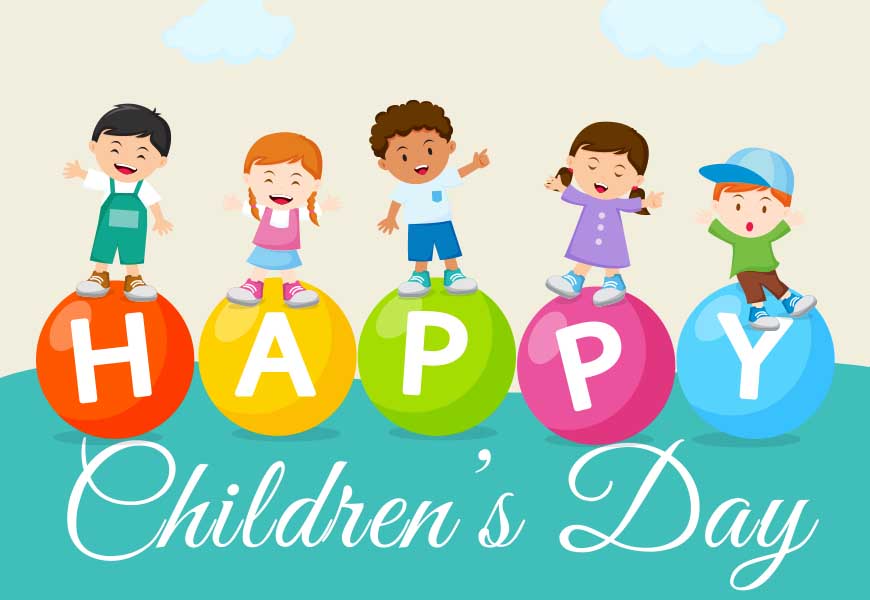The International Children’s Day, marked every year on the 27th of May in Nigeria, is a day sanctioned by UNICEF, to celebrate and appreciate the needs of children and address them. It’s an international holiday that was first established in Nigeria in 1964. The day is specifically to celebrate children, raise awareness on issues that affect them and help nations appreciate the fact that they are the future of societies. On this day, some activities are organised; speeches are made, just as pledges are made to address the problems. However, it seems as soon as the ceremony ends, nothing much is done until another year for another round of celebrations.
The theme for this year’s World Children’s Day is ‘For every child, every right’. This theme is apt, taking into account how the rights of children in this country seem to be trampled even in homes, where they are supposed to be safe and protected.
The most important right of the child is education. According to UNICEF, “Even though primary education is officially free and compulsory, about 10.5 million of the country’s children aged 5-14 years are not in school. Only 61 per cent of 6-11-year-olds regularly attend primary school and only 35.6 per cent of children aged 36-59 months receive early childhood education. In the northern part of the country, the picture is even bleaker, with a net attendance rate of 53 per cent. Getting out-of-school children back into education poses a massive challenge’’.
Looking at the plight of some pupils and students in many schools in Nigeria, many of our children are still learning in dilapidated classrooms. The classrooms are inadequate and even where they exist, they lack basic infrastructure for effective teaching and learning to take place. There are no well-educated teachers, no functional libraries, no laboratories and workshop equipment among others. Children learning under these conditions cannot compete with other children from other parts of the world.
- NIGERIA DAILY: How To Make Sense Of The Kano Emirate Controversy
- Nigeria to review capitation fees for health insurance contributors – NHIA
Access to qualitative education is increasingly difficult. In some parts of the country, particularly the North, the so-called almajiri syndrome is symptomatic of the sickening denial of access to education for vulnerable children. It must be noted that such children can easily become tools in the hands of unscrupulous people.
In the health sector, pregnant women and children under the age of five must be especially cared for. It is true that such programmes exist in some states at the moment, but they must be effectively implemented. Children are the most vulnerable whenever there is an outbreak of disease. The health of our children must be given priority, as they are the future of the country. We must make sure that every child is vaccinated against the various killer diseases.
Another area in need of urgent attention is the internally displaced persons (IDP) camps, which were created as a result of the conflicts in various states of the country. The situation in which the children from these camps are, calls for concern. The trauma alone is unbearable for their age to absorb, not to mention the abuse they face from the elderly ones, which includes rape and other forms of molestation. Government at all levels should lend a helping hand to tackle the situation.
Parents too need to play a critical role in the shaping and orientation of their children. Many have put the search for worldly things above education, care and love that their children need, exposing them to all forms of social abuse. The high prevalence of broken homes in the country has serious consequences on the moral upbringing of children and youths.
The Universal Basic Education Commission and the various Universal Basic Education Boards across the 36 states of the federation as well as the Federal Capital Territory (FCT) should be re-engineered in order to guarantee at least basic education to every Nigerian child. The National Agency for the Prohibition of Trafficking in Persons (NAPTIP) should do more to combat child trafficking, child labour, child abuse, forced prostitution and all other forms of abuse so that children are not exposed to these dangers at this stage of their lives.
For a Nigerian child to feel loved and cared for, he/she must get free health care, education and nutrition for growth and development. Therefore, the government should encourage anything that will empower families, including accelerating the process that will lead to an acceptable living wage, as the fate of children is attached to the fate of their parents. It must be emphasised that the state of the economy reflects on the families and their children.
As children march to the rhythms of their individual school bands and the politicians mouth the usual platitudes to mark this day, we should all spare a moment to remember and pray for the safe return of all the children in captivity.
We wish all children in Nigeria a happy celebration.

 Join Daily Trust WhatsApp Community For Quick Access To News and Happenings Around You.
Join Daily Trust WhatsApp Community For Quick Access To News and Happenings Around You.
